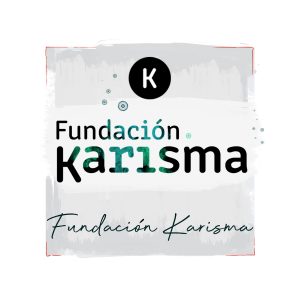Index relies entirely on the support of donors and readers to do its work.
Help us keep amplifying censored voices today.
[vc_row][vc_column][vc_video link=”https://www.youtube.com/watch?v=keuoW49mUy0″][vc_column_text]Carolina Botero Cabrera, executive director of Fundación Karisma, accepted the award on behalf of the organisation.

Good evening. We are honored by today’s recognition, and humbled to be part of such a great group of organizations shortlisted from all over the world. Knowing that we were the Latin American candidate for this award was a great privilege and joy for us in itself. But we are especially grateful to Index on Censorship for the opportunity to speak in front of all of you.
For some years now, in Fundacion Karisma, a women-led organization, we have been reflecting on the need to analyze the experiences of women on the internet. In 2015, we worked with a group of female journalists to distinguish and understand the consequences of online harassment that this group faces, not only on account of their profession, but because they are women.
Our findings show that online harassment is often underestimated, and that its effects are often downplayed. But what worried us most was how much female journalists prefer to opt for self-censorship. And this self-censorship impacts not only the freedom of expression of women, but of society as a whole, because there is less diversity of voices in the public debate.
From this experience, we asked ourselves how to provoke a conversation about gender-based discrimination on the Internet. This is how “Alerta Machitroll” was born.
At the heart of Karisma’s work has always been the promotion of access to knowledge and culture. As you just heard, we worked on the case of Diego Gomez, a young biology student who faced between 4 and 8 years in prison for copyright infringement, for sharing an academic paper on the internet. With our support, Diego’s case ended well and two judges concluded that science is characterized by sharing practices.
Let me emphasize that the Internet is a great tool for freedom of expression. However, its growing prevalence is not always linked to greater freedom of expression for all… Karisma works to show how we can transfer and strengthen offline safeguards into the online world and to increase awareness of these issues.
Repressive and regressive regulation and practices that harm freedom of expression are often in response to fear. In Karisma, however, we aim to draw attention to problems that are important to people like you and me with solutions that strengthen rather than diminish freedom of expression. It is not an easy task, but this award tells us that we are on the right track.Thank you.
Full profile: Colombia’s Fundación Karisma works to enhance digital rights[/vc_column_text][vc_basic_grid post_type=”post” max_items=”10″ style=”load-more” element_width=”6″ grid_id=”vc_gid:1554466702885-d23c3d1b-aded-4″ taxonomies=”8935″][/vc_column][/vc_row]
[vc_row][vc_column][vc_video link=”https://youtu.be/Ex0EURB6Zk8″][vc_column_text] Colombia’s Fundación Karisma is a civil society organisation devoted to encouraging the use of digital technology and enhancing freedom of expression on the internet.
Colombia’s Fundación Karisma is a civil society organisation devoted to encouraging the use of digital technology and enhancing freedom of expression on the internet.
The organisation offers a rare space to discuss many issues at the intersection of human rights and technology in the country.
Karisma identifies areas of concern — like the online harassment of women — in Colombia’s digital sphere, and then tackles them through a mix of research, advocacy and digital tools.
One such initiative is Fundación Karisma’s “Machitroll Alert”, an online tool that uses humour to tackle misogynism online. Abuse and harassment online is leading increasing numbers of women to self-censor or withdraw from debates online.
Fundación Karisma’s tool allows internet users to call out misogynistic abuse online (or machist trolls, in short ‘machitroll’). Users upload screenshots of abuse, and place a stamp to mark their alert: Incurable Machitroll, Recoverable Machitroll or Machitroll Alert, and then post it online with a funny message. An example: “You are suffering a lot! Have an herbal infusion before bed and occasionally wear a pastel coloured garment. You will see that you will continue to be just as macho, but less aggressive.”
The initiative provides an alternative, non re-victimising course of action for women facing abuse online, while drawing attention to the amount of online harassment in Colombia and its chilling effect on women.
While ‘Machitroll Alert’ has been one of Fundación Karisma’s successes, the intersection of gender, free expression and the internet is not its only focus. Its “Sharing is not a crime” campaign supports open access to knowledge against the backdrop of Colombia’s restrictive copyright legislation. The campaign started after a young student faced criminal prosecution for posting a publicly funded master’s thesis on the internet, and thanks to Karisma and support from international organisations, the student was acquitted in December 2017.
While “Machitroll Alert” was launched in 2015, it has expanded over the years, and Fundación Karisma keeps adding content to the initiative.
Another addition to the project has been the campaign to make it visible beyond the online world with a series of workshops and events across the country. The first four events took place in Bogotá in September and October 2018.[/vc_column_text][vc_separator][vc_row_inner][vc_column_inner width=”1/2″][vc_single_image image=”104691″ img_size=”full” onclick=”custom_link” link=”https://www.indexoncensorship.org/2019/01/awards-2019/”][/vc_column_inner][vc_column_inner width=”1/2″][vc_column_text]
Index on Censorship’s Freedom of Expression Awards exist to celebrate individuals or groups who have had a significant impact fighting censorship anywhere in the world.[/vc_column_text][/vc_column_inner][/vc_row_inner][vc_separator][/vc_column][/vc_row][vc_row][vc_column][vc_basic_grid post_type=”post” max_items=”4″ element_width=”6″ grid_id=”vc_gid:1552649999151-8ee70357-5058-7″ taxonomies=”26925″][/vc_column][/vc_row]